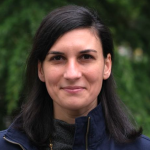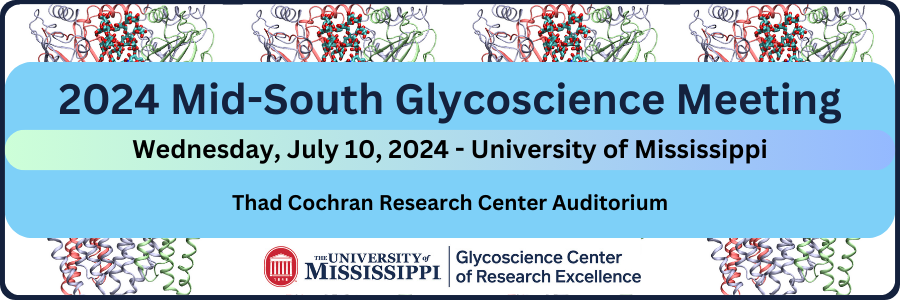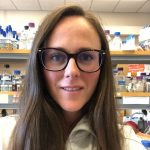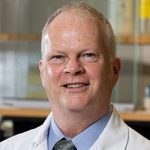Stephen G. Withers, Emeritus Professor of Chemistry and Biochemistry, The University of British Columbia, Department of Chemistry and Biochemistry, Vancouver, BC Canada
Prof. Withers is Emeritus Professor of Chemistry and Biochemistry at the University of British Columbia where he was on faculty from 1982-2023, and is still running a research group. He obtained his BSc and PhD in chemistry with Michael Sinnott at the University of Bristol, UK and was a postdoctoral fellow with Neil Madsen and Brian Sykes in the Biochemistry department at the University of Alberta doing heteronuclear protein NMR prior to his independent position.
His research interests straddle the fields of organic chemistry and biochemistry, with a particular interest in the mechanisms of carbohydrate-active enzymes. These mechanistic insights have led to the development of methodologies for engineering of glycoside hydrolases into synthetic enzymes (glycosynthases), which are now used industrially for large scale ganglioside synthesis as well as the development of potent inhibitors for several enzymes of therapeutic interest, including the influenza neuraminidase and human alpha amylase. More recently he has focused upon the high-throughput discovery of enzymes for removal of cell surface antigens. These are being used to convert A and B type red blood cells to universal donor O type as well as to modify human organs to universal O type prior to transplant.
Tania Lupoli, Assistant Professor of Chemistry, New York University Department of Chemistry, New York, NY
Dr.  Lupoli was born and raised in New York, and graduated from NYU in 2005 as a chemistry major. After training in Chemistry/Chemical Biology and Microbiology departments, she returned to NYU Chemistry in the summer of 2018 to use interdisciplinary approaches to answer lingering questions in the field of infectious disease. She was selected as a 2023 Early Career Investigator by the International Chemical Biology Society. This highly selective honor tags recipients as “Rising Stars” in the field.
Lupoli was born and raised in New York, and graduated from NYU in 2005 as a chemistry major. After training in Chemistry/Chemical Biology and Microbiology departments, she returned to NYU Chemistry in the summer of 2018 to use interdisciplinary approaches to answer lingering questions in the field of infectious disease. She was selected as a 2023 Early Career Investigator by the International Chemical Biology Society. This highly selective honor tags recipients as “Rising Stars” in the field.
In her lab at New York University, Dr. Lupoli studies pathways that are important for survival of bacterial pathogens under the stressful conditions they encounter inside and outside of the host. The lab is currently focusing on two main areas: (1) the synthesis and degradation of carbohydrate-based polymers on bacterial surfaces, and (2) stress response mechanisms that allow bacteria to evade cell death. Using tools from biochemistry/chemical biology, chemistry, and microbiology (including sequencing-based approaches), they seek to discover the molecular players that modulate these pathways, and design molecules that can mimic or inhibit their functions. With expertise in clinically-relevant bacteria, like Mycobacterium tuberculosis, they can answer fundamental questions that pertain to human infection disease.
Gregory Hudalla, Associate Professor, Department of Biomedical Engineering, University of Florida, Gainesville, Florida
Dr. Hudalla is an Integra LifeSciences Term Professor and Graduate Coordinator. He was previously a National Institute of Health NRSA Post-Doctoral Fellow at the University of Chicago. He earned his bachelor’s degree in chemical engineering from the Illinois Institute of Technology and both his master’s degree and Ph.D. in biomedical engineering from the University of Wisconsin.
Dr. Hudalla’s research creates functional biomaterials for therapeutic or diagnostic applications via molecular self-assembly. The Hudalla laboratory develops synthetic peptides that can assemble into a desired nano-scale architecture, and then uses these peptides as “tags” to organize biologically active molecules into functional nanomaterials. For example, their work has led to glycosylated nanofibers that inhibit the immunomodulatory activity of galectins, a family of carbohydrate-binding proteins. In another project, they combine enzymes and carbohydrate-binding proteins into catalytic nanomedicines that are anchored to tissues at an injection site via binding to extracellular carbohydrates. Hudalla’s long-term goals are to create biomaterials that can modulate immune responses for the treatment of autoimmune diseases and aberrant inflammation.
Melanie Higgins, Assistant Professor, Department of Biological Sciences, University of Alabama, Tuscaloosa, Alabama
Melanie Higgins received her PhD in 2012 from the University of Victoria under the supervision of Dr. Alisdair Boraston, where she investigated glycan degrading enzymes from Streptococcus pneumoniae. In 2013, she moved to the University of Adelaide as an NSERC Postdoctoral Fellow in Dr. James Paton’s lab where she continued her research on pneumococcal pathogenesis. She then joined Dr. Kaity Ryan’s group at the University of British Columbia as an MSFHR Postdoctoral Fellow in 2015 to study the structure-function relationships and mechanisms of bacterial natural product biosynthetic enzymes. In 2021, she started her independent career at the University of Alabama where she combines her glycobiology, structural biology, and natural product biosynthesis background to discover microbial enzymes with new activities, focusing on carbohydrate active enzymes and natural product biosynthetic enzymes.
Robert Woods, Professor of Biochemistry and Molecular Biology, and Chemistry, Complex Carbohydrate Research Center, The University of Georgia, Athens, Georgia
Dr. Woods received both his B.Sc.(Honors) in engineering chemistry in 1985 and his Ph.D. in 1990 in computational and synthetic organic chemistry from Queen’s University in Kingston, Ontario, Canada. He joined the CCRC in January 1995. Dr. Woods is a senior investigator on a technological research and development project of the National Institutes of Health Resource Center for Biomedical Complex Carbohydrates. He has been invited to write an entry on carbohydrate force fields for the Encyclopedia of Computational Chemistry. He is a member of UGA’s Campus Information Technology Forum and the UGA Modeling Laboratory Operations Committee, and has made recent presentations at the International Carbohydrate Symposium, the Gordon Research Conferences, and the National Research Council of Canada.
Dr. Woods’s research examines the relationships between the conformations of carbohydrate molecules and biological recognition and activity, particularly the mechanisms involved in carbohydrate recognition in immunological events. Significant alterations in the biological activities of peptides and proteins often accompany the covalent attachment of an oligosaccharide (glycosylation) to one or more of their amino acid residues. Approximately 60% of all mammalian proteins are glycosylated, and the glycoproteins that are generated by glycosylation are also frequently found attached to the cell surfaces of bacteria, fungi, and parasites.




